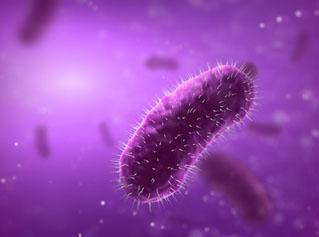Donovanosis
Information about donovanosis
We show you all you need to know about donovanosis. Find out about the symptoms, diagnosis, treatment and possible complications from catching donovanosis.

Granuloma inguinale also known as Donovanosis.
Granuloma inguinale is caused by a bacteria called Klebsiella granulomatis (Donovania granulomatis).
Granuloma inguinale can be spread more than anything through sexual relations which can be:
- Vaginal.
- Anal.
- Oral (this is usually a rare way).
Men are more frequently infected than women and this usually happens with men between 20 and 40 years of age. The granuloma inguale is rarely seen in the elderly and in children.
Granuloma inguinale: symptoms
The symptoms of granuloma inguale can appear from one week after being infected up to twelve weeks after being in contact with the bacteria, among these we can find:
- Wearing away of the skin and swollen bulges which then become nodules which are velvet like, fleshy and red, called the granulation tissue.
- Small, red, fleshy lumps in the anal area or on the genitals.
- They are usually painless, but they bleed easily if they are damaged.
- It spreads slowly and destroys the genital tissue.
- Ulcers in the anal area.
Granuloma inguinale: diagnosis and treatment
It can be granuloma inguinale if the genital ulcers have been there for a long timeand have been spreading.
The examinations that can be done in order to diagnose granuloma inguinale can include:
- A scrape or biopsy of the wound, with this test a small portion of the skin is extracted in order to be able to diagnose the illness.
-A cultivation of a simple of the tissue, in this case, the doctor extracts superficial layers of the skin that is not filled.
The treatment of granuloma inguinale is a course of antibiotics, and the healing requires a prolonged treatment. This diminishes the possibilities of destruction or scarring of the tissue. Without treatment, the illness can cause damage to the genital tissue.
Possible complications of granuloma inguinale
There are potential complications of inguinal granulomainfection. These may be:
- Genital swelling permanent scarring.
- Damage and scarring of the genitals.
- Discolouring of the skin in the genital area.
How granuloma inguinale can be prevented
Some of the ways of preventing granuloma inguinale, can be:
- Abstaining from sexual relations with anyone who is infected with the granuloma inguinale.
- If you do have sexual relations with anyone infected by the granuloma inguinale make sure to use safe contraceptives such as the condom or female condom.
- Limit the number of different sexual partners you have.
-If you think that you could be infected with granuloma inguinale, avoid maintaining sexual relations in order to not pass it on to third parties and seek advice from your doctor.
Most popular FAQs
Questions by recent users
- What do I have to take with me on the day of surgery?
- I have missed my period but the pregnancy test is negative
- Is there anyway I can find out about a previous abortion I have had?
- Appointment on bank holiday
- The fourth time in about 6 months that i'll be using the after morning pill... is it safe?



